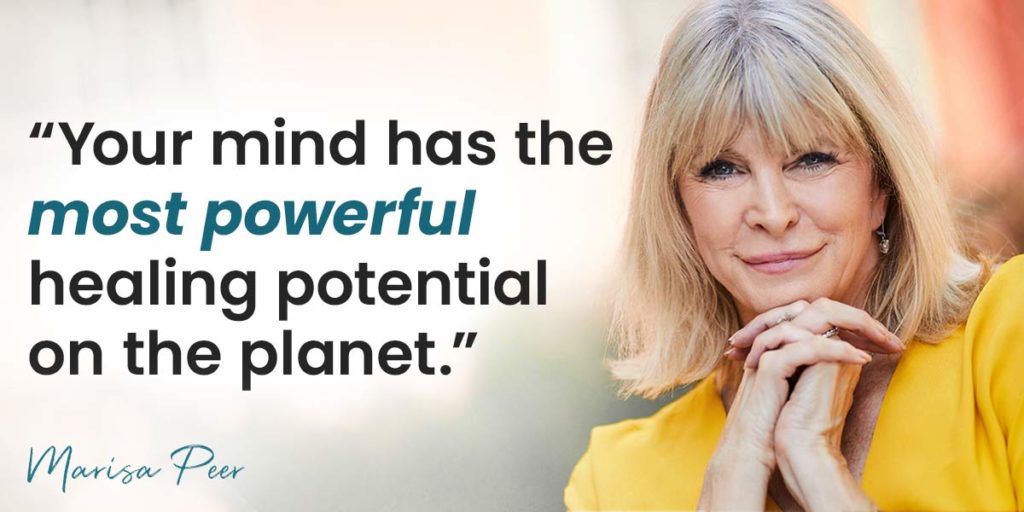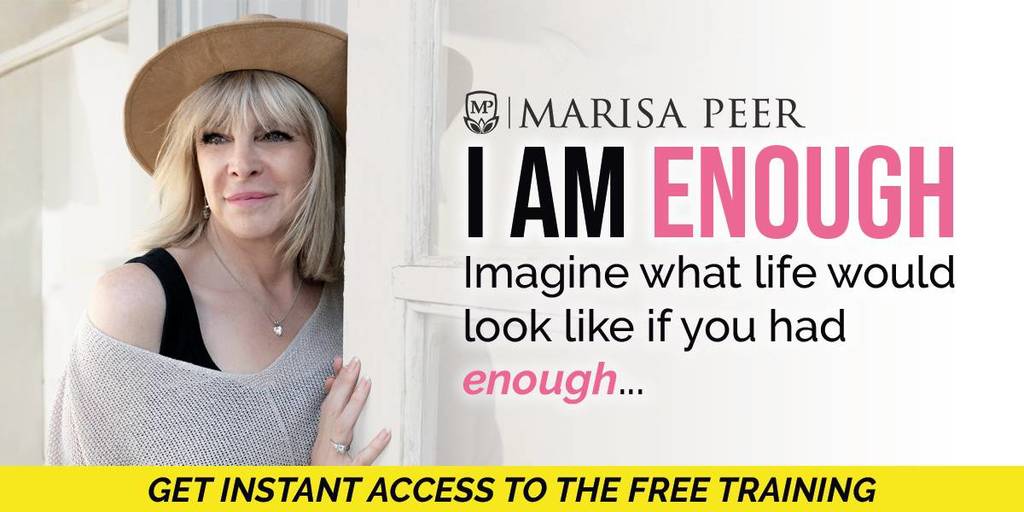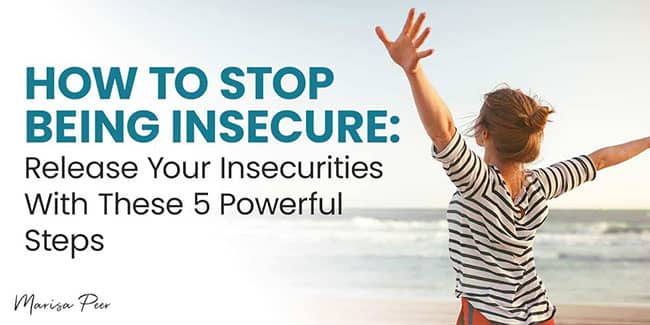Have you been skimming multiple articles about how to stop being insecure but are still scratching your head on what to do exactly?
Do you ever feel insecure in your relationship—jealous, or snooping around your partner’s phone?
Or do you always second-guess your decision to go to the beach because your body is far from being as fit as you’d like it to be?
Maybe, you always find yourself shying away from the spotlight in social situations.
If you answered yes to any of these questions, know that struggling with insecurities is more common than you think. If you’re looking for methods on how to deal with insecurity, then you’ve come to the right place.
Along with how to stop being insecure, you will learn:
- What insecurity is and the different ways it manifests in everyday life
- The root cause of your insecurity
- How being insecure can affect your life and relationships
- How to release your insecurities in five powerful steps
What Is Insecurity? And How To Know If You Have It
You may find that the internet provides somewhat confusing information on this topic. This is because feeling insecure is a tricky concept to wrap your head around.
For starters, if you ask yourself: “What is insecurity?” you may find it hard to define this concept without exploring other internal feelings such as self-confidence, self-doubt, groundedness, and anxiousness.
In simple words, insecurity is a lack of confidence or reassurance in some aspect of self.
Navigating the feeling of insecurity can be tricky because it evokes other feelings of inadequacy and being threatened.
It can also manifest itself in many different aspects of your life. Insecurity can show up as jealousy in your relationship, self-criticism, and becoming overly focused on other people’s lives instead of your own.
Signs of insecurity
Most reactions coming from a place of insecurity are unhelpful and disempowering.
Insecurities can be subtly dripping negative thoughts into your mind without you even noticing. However, once you realize that most of the things you are insecure about are in your head, you can do something about it.
Signs of insecurity include:
- Shutting down emotionally when you are confronted with a difficult situation you don’t want to deal with.
- Feeling overly jealous and distrustful of your partner.
- Making unfair comparisons with other people that leave you feeling like you’re not good enough no matter how hard you try.
- Having a tendency to want to please other people in order to get their validation.
As you can see, insecurity can show itself in many forms. Moreover, if you let it, it can take control over your daily life as well as your relationships. The recognition of that fact, however, is a good first step on your way out of insecurity.
Why Am I So Insecure?—The Root Cause of Your Insecurity

Most of us think that insecurity comes from external influences. In reality, more often than not, it’s created from the inside—coming from your mind.
According to Marisa Peer, best-selling author, and motivational speaker, this feeling can originate early in life with an insecure attachment to your parents, or it can develop after being hurt or rejected by someone you care about.
Think of it like this:
When you accidentally cut your skin, your body forms a scab over the wound that takes some time to heal. After the healing process takes place, sometimes scar tissue is formed where the wound used to be.
The same thing occurs when you’ve experienced emotional hurt: your mind processes that feeling as an emotional wound and needs to take some time to heal from the experience.
After the healing process is over, your mind can sometimes form its own “scar tissue” that can manifest itself as insecurity.
Just like real scars, these “emotional scars” can sometimes evoke sensitive reactions when triggered, and they can push you to act in ways that often make matters worse.
How Being Insecure Can Affect Your Life And Relationships

Even though insecurity may seem like something personal, its far-reaching consequences can affect nearly every aspect of your life.
Insecurity stands behind toxic relationships, it steals your peace of mind in your financial life, and it keeps you thinking small by dragging you back to your comfort zone.
In your relationship, insecurity manifests itself as jealousy. You feel constantly uncertain about whether or not your partner loves you or is attracted to you.
This drives your constant need for attention, approval, and validation from your partner, which can become overbearing to them.
If you are insecure in your relationship, it may lead you to want to distrust your partner and start snooping around their personal life.
This overly controlling behavior can be damaging to your relationship and make your partner feel suffocated.
With such a dynamic between two people, it’s just a matter of time before the relationship begins to gradually deteriorate.
In your life, insecurity can manifest as a difficulty to set clear boundaries. When you are not grounded in your own self-worth, you can be more likely to go out of your way to make other people happy while sacrificing your own needs.
There is nothing wrong with wanting others to be happy. However, if your actions are guided by a lack of self-love, more often than not, those noble intentions are motivated by a need for constant approval and validation from others.
Trying to compensate for your own lack of self-worth or self-esteem by placing unreasonable demands on others will likely backfire sooner or later.
Insecurity can make you self-conscious—one of the ways it manifests is by making you overly conscious of your body.
You may find yourself avoiding mirrors, and when you do look at them, it’s often met with negative self-talk and harsh self-criticism.
If that’s you, it’s a sign that you have internalized the critical voice from some past negative experience. Or you have a tendency to compare yourself to other people in a way that makes you feel like you’re not enough.
Fortunately, when you start to notice that sinking feeling and wonder how to deal with insecurity—there are a few immediate things you can do.
5 Powerful Steps to Release Your Insecurities

Part of why insecurity feels so heavy and painful is that it creates an illusion that you are the only one who suffers it. This alienating experience can make you feel broken, unworthy, and that something is wrong with you.
As you go through the steps below, try to remember that everyone in the world is insecure in some way. A certain level of insecurity is natural and simply a part of normal human experience.
Having said that, we should strive to minimize our insecurities as much as we can because the less of them we have, the more enjoyable our experience of life becomes.
How to deal with insecurity—here are the five powerful steps to letting your insecurities go:
1. Become conscious of your insecurities
Open up a Word document or take out a piece of paper, and bring to mind one of your insecurities and write it down.
It doesn’t matter what it is; it can be anything. The only rule is that you’re going to pick one insecurity at a time.
You may want to figure out how to stop being insecure in a relationship,
maybe you want to get over feeling insecure about the shape of your nose or body,
or perhaps you’re feeling envious of your friend’s recent career promotion.
Now write down the answers to the following questions:
- What am I insecure about?
This is an important first step because you can’t overcome a fear or insecurity if you don’t label it and become aware of it first.
For example, if your insecurity revolves around your relationship, bring to mind the image that evokes feelings of insecurity. An unpleasant memory of someone flirting with your partner could spring to mind (along with all the negative emotions associated with it).
If that’s the case for you, be honest with yourself and write down: “Jealousy in a relationship.”
After you become aware of your insecurity, ask yourself the following question:
- Where does this insecurity come from?
This question can help you dig a little deeper into the root cause of your feelings.
Does your insecurity come from something that you may have experienced early in your childhood?
Or maybe it’s a recent negative life experience that left a permanent mark on your psyche?
Facing these deeply buried emotions is not an easy thing to do.
In fact, most people shy away from uncovering and examining painful memories and hope they go away on their own.
Unfortunately, when such emotions are not processed and released, they can slowly begin to fester. Until you muster up the courage to face them, your day-to-day life will be negatively impacted.
For example, if you’re wondering, “How do I stop being jealous and insecure in my relationship?” realize that this feeling comes from you being uncertain about whether your partner actually loves you or is attracted to you.
Now, it is possible that your partner gives you genuine reasons for concern and your feelings of insecurity are not unfounded.
However, if you find yourself feeling jealous and insecure for no good reason, then keep asking yourself, “Why?” until you arrive at an answer.
For example, if as a child your parents were going through a divorce, you may have experienced feelings of abandonment. This could have affected you well into your adulthood, making you fear and actively avoid any type of feeling that reminds you of abandonment.
2. Shift your perspective from self-judgment to self-love

Now that you are clear about what your insecurity is and where it comes from, ask yourself this:
“Now that I have a clearer perspective, am I willing to see things differently?”
“If you change the way you look at things, things you look at change.”—Wayne Dyer
Realize that your insecurities are the result of your own self-judgment—they are not the objective reality.
Replace self-judgment with self-acceptance —and poof! Your insecurities disappear.
From now on, try applying a more positive lens to see yourself through—a lens of self-love.
How would your insecurity look through the lens of self-love and self-acceptance?
Throughout Marisa’s 30 years of experience and from helping thousands of people release their deepest fears and insecurities, she realized that the root cause of most of our issues stem from lacking self-love and feeling that we are not enough on our own.
Just like in the first exercise, make sure that you are writing your answers down either on a piece of paper or a Word document.
Now go back to the memory that the insecurity originated from and try seeing it from a perspective of self-love.
How do you do that?
Become a loving parent to your past self.
For example, let’s say you are insecure about your nose and you think it’s too big.
Instead of seeing yourself as a victim that is being bullied and feeling like you are “not good enough” or “not pretty enough”—see this child from a perspective of a loving parent.
Close your eyes and remember the situation when you felt insecure for the first time. See this upset little child in your memory. Tell them that they are beautiful and it doesn’t matter what other people think. Then give your child-self a big hug.
Remember that kids tend to make fun of each other all the time for no reason. There is no point in letting events like this from the past dictate how you feel about yourself later in life.
If you’re doing it right, you should have a growing warm and fuzzy sensation in your heart area—stay with that sensation and let it grow.
However, if you don’t feel anything, get free instant access to Marisa’s powerful ‘I Am Enough’ meditation—it will help you unlock that relaxed state of mind that is conducive to this powerful visualization.
As you can see, a shift in perspective can be really powerful—it can allow you to understand, accept, and love yourself more.
3. Reprogram your subconscious mind

Now that you have identified the insecurities and changed the way you see them, it’s time for step three—reprogramming your subconscious mind.
As you may (or may not) know—the subconscious mind stores all of your beliefs. Your beliefs determine the dominant thoughts your mind creates.
As Marisa Peer, who has spent over three decades treating a client list that includes international superstars, CEOs, royalty, and Olympic athletes, says:
“You make your beliefs then your beliefs make you then the universe makes those beliefs real.”
So, what are beliefs exactly?
Think of beliefs as clouds. Out of those clouds comes rain—your thoughts. If your clouds are made of toxic water, the rain they cause will be of the same quality—toxic.
If you want your thoughts to stop sabotaging your efforts by making you feel insecure, you have to go straight to the root cause—your beliefs.
Hopefully, you have now identified quite a few insecurities that you are working on by writing them out and shifting your perspective on them.
The next step is to cross off your insecurity and replace this limiting belief with a new, more empowering one.
For example, if your insecurity was:
“I don’t feel pretty enough because my nose is too big.”
Replace with:
“I don’t feel pretty enough because my nose is too big.”
“I am enough as I am, and I fully accept how my face looks.”
After going through this exercise with a bunch of your insecurities, you will end up with a highly personalized list of affirmations that you can now repeat to yourself on a daily basis.
If you want to take this process to the next level, you can sign up for Marisa Peer’s free ‘I Am Enough’ masterclass.
150,000 people have used this free masterclass to help them release their own mental blocks and insecurities.
If you feel like you have your own insecurities holding you back from fully accepting yourself unconditionally, Marisa will help you get into the trance-like state needed to access the subconscious part of your mind.
During this process, a critical, conscious part of your mind shuts down, and you can work with your subconscious mind directly.
You can then install positive beliefs and suggestions, and bring in new empowering ideas that you never thought were possible.
Marisa rewires your thinking, leaving you with unshakable certainty and conviction that you are enough and will always be enough.
In the beginning, it may feel unnatural to say those self-affirming words when you are used to criticizing yourself.
With enough repetition though, your mind has no choice but to accept the new beliefs —so stick with it until repeating those self-loving statements feels natural.
4. Stop comparing yourself to other people

“Comparison is the thief of joy.”—Theodore Roosevelt
You are not in competition with people you see on Instagram, and the brand of your car doesn’t determine your inherent value as a person.
The bad news is that no matter how pretty, successful, or wealthy you become, there always will be someone who has more of those qualities than you.
The good news is—life is not a competition.
Instead of comparing yourself to other people, try remembering that we are all here to share our unique gifts with the world. Comparison makes you lose sight of your own strengths and makes your inadequacies seem disproportionately large.
Comparison is also unfair. Everyone has a different story and a different set of strengths and weaknesses. Comparing your weaknesses to someone else’s strengths is a game that is rigged against you.
The only person you should compare yourself to is the past you—you from 5 years ago, last year, or yesterday. As long as you are improving and growing—that’s all that matters.
It’s all about progress, not perfection and not competition.
5. Stay aware and catch yourself

After successfully going through the previous four steps, you should be well on your way to releasing your insecurities once and for all. Well done.
Despite the fact that you successfully dealt with your insecurities, they may still occasionally crop up—old habits die hard.
As Marisa Peer says:
“Your mind is hardwired to resist what is unfamiliar and to return to what is familiar.”
Whenever you catch yourself having insecure or negative thoughts, or comparing yourself to other people, make sure to notice and interrupt them with the affirmations you compiled in step three.
It will take time and repetition before your affirmations become ingrained deeply enough that they become your mind’s default.
During that transition period, make sure that you don’t let any negative thoughts pass by unnoticed. Quickly reframe them into new empowering thoughts.
So remember: stay in control of your mind.
6. Take an active role in your self-improvement
Insecurity is a very challenging mindset to hold, as it can affect so many aspects of your life. From how you think about yourself, to how you think others perceive you, and to how you interact with the wider world.
That’s why it is very important that once you have decided a change needs to be made, you ensure you dedicate the time, energy, and commitment to the journey of rewiring your thoughts and behaviour patterns.
This isn’t an easy feat to achieve alone, of course. But with a little help and a network of like-minded individuals in your corner, it is possible to overcome your insecurity and welcome in a new, confident you.
Marisa Peer’s 21-Day Unstoppable Confidence Challenge aims to dispel all your previously held beliefs about yourself, and replace your negative thoughts with unshakeable, unstoppable confidence. When you feel confident, you feel good about yourself. When you feel good about yourself, you can take on the world.
Join a thriving community of people attempting to improve their confidence and receive daily training for three weeks by clicking the banner below and signing-up to the challenge.

Final Words
Now that you know that you don’t have to let your insecurities control your mind, you can start releasing them. The real transformation, however, starts when you put what you learned into action. The best place to start is by putting those five steps into practice.
Your insecurities aren’t likely to vanish overnight, but slowly they will start to weaken.
Do you want to supercharge this process and take your life to the next level in record time? You are ready for Marisa Peer’s award-winning at-home transformation program, ‘I Am Enough’.
Sign up for Marisa’s free ‘I Am Enough’ masterclass to make your first step a life free of insecurity.




